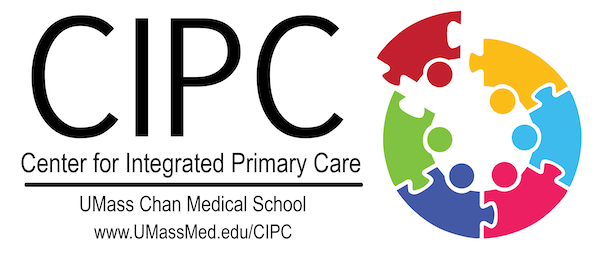| Introduction |
|
Course Introduction
- The Purpose of this Course
- Course Logistics
- Definitions of Terms
- Mechanisms of Feedback
|
| Part 1 |
|
Module 1: Mental Health and Primary Care in an Inequitable Society
-
Current State of Mental Healthcare and the Role of Primary Care
-
Social Context and Structures of Oppression
-
Culturally Humble and Structurally Competent Care
-
Trauma-Informed Care
Module 2: Initial Principles of Mental Health Care & Patient Engagement
- Key Principles of Initial Mental Health Related Assessment, Diagnosis, and Engagement (Live On-Line)
- Understanding & Navigating the Complex Terrain of Talk Therapy (Live On-Line)
- General Principles of Psychopharmacology (Live On-Line)
- Major Classes of Psychotropic Medications (Live On-Line)
Module 3: Mental Health and Substance Use Screening
- Screening for Unmet Mental Health Needs in Primary Care
- Communication Strategies Unique to Mental Health Screening
Module 4: Connecting Patients with a Behavioral Health Clinician
- Team-Based Care and Clarifying Roles
- Assessing Readiness to Meet with a Behavioral Health Clinician
- Facilitating Successful Introductions to a Behavioral Health Clinician
- Tailored Communication Strategies to Engage Reluctant Patients
|
| Part 2 |
|
Module 5: What Sets the Stage: Chronic Stress, Adversity, and Trauma
- Human Nature and Expected Emotional Distress
- Stress, Emotions, and the Vulnerability-Stress Model
- Definition of Trauma, Prevalence of Trauma Exposures, and Nature of Complex Trauma
- Stress and Emotional Health Responses to Poverty, Discrimination, and Exclusion
- Chronic Stress as a Driver of Chronic Physical and Mental Health Conditions
Module 6: Sleep Health is a Foundation of Mental Health
- The "Macros" of Sleep Health
- Sleep-Related Assessment and Diagnosis
- Complex Cases of Insomnia: Pharmacotherapy and Co-ocurring Conditions
- Core Behavioral Interventions for Insomnia
Module 7: Responses and Adaptations to Trauma and Stressors
-
Adjustment Disorders
- Assessment and Diagnosis of Acute Stress Disorder and PTSD
- Complex PTSD and Developmental Trauma Disorder
| Clinical Cases Series 1: Integration of Concepts & Practical Application (3) |
|
| |
Module 8: Depression
-
Introduction to Depressive Disorders
-
Major Depressive Disorder
-
Persistent Depressive Disorder and Seasonal-Onset MDD
-
Premenstrual Dysphoric Disorder
-
Obsessive-Compulsive Disorder
- Pharmocotherapy for Depressive Disorders (Live On-Line)
Module 9: Care of Patients with Medically Unexplained Symptoms
-
The Unexplained Symptom and Diagnostic Humility
-
Health Anxiety and Illness Anxiety Disorder
-
Somatic and Functional Neurological Symptom Disorders
| Clinical Cases Series 2: Integration of Concepts & Practical Application (3) |
|
| |
|
Module 10: Anxiety, Obsessions, and Compulsivity
-
Introduction to Anxiety Disorders
-
Generalized Anxiety Disorder
-
Panic Attacks and Panic Disorder
-
Other Anxiety Disorders
-
Obsessive-Compulsive Disorder
- Pharmocotherapy for Anxiety & Obsessive Compulsive Disorders (Live On-Line)
Module 11: Substance Use
-
Substance Use Disorder Diagnosis and Patient Engagement
-
Chronic Care Model and Substance Use Disorders
-
Levels of Care and Medication Treatments for Substance Use Disorders
| Clinical Cases Series 3: Integration of Concepts & Practical Application (3) |
|
| |
|
Module 12: Attention and Hyperactivity Across the Lifespan
-
Exectuive Functioning, Mental Health, and Behavior
-
Attention Deficit/Hyperactivity Disorder in Childhood and Adolescence
- Attention Deficit/Hyperactivity Disorder in Adulthood
- Psychopharmacology in Adult ADHD and Navigating Co-occurring Conditions
Module 13: The Bipolar Spectrum
-
Introduction to Bipolar Spectrum Disorders
-
Hypomania, Mania, and Mixed States
-
Bipolar Depressive Episodes and Cyclothymia
-
Psychopharmacology for the Bipolar Spectrum (Live On-Line)
- Approaches to Communication, Medication Hesitancy, and Comprehensive Care in Primary Care
| Clinical Cases Series 4: Integration of Concepts & Practical Application (3) |
|
| |
|
Module 14: Psychosis and Altered Perceptual Experiences
-
Introduction to Psychosis, Screening, and Assessment
-
First-Episode Psychosis (Live On-Line)
-
Schizophrenia, Schizoaffective Disorder, and Delusional Disorder (Live On-Line)
-
Metabolic Health, Antipsychotics Side Effect Management, and Maintenance Outside of Acute Episodes (Live On-Line)
-
Approaches to Communication and Medication Hesitancy for Psychotic Spectrum Disorders
Module 15: Relationships to Food and the Body in a Weight-Obsessed Society
-
Understanding Diet Culture and Anti-Fat Bias
- The Role of Primary Care in Addressing Weight Stigma and Disordered Eating
- Review of Common Challenging Eating Behaviors and Related Disorders
- Pharmacological and Behavioral Treatments for Eating Disorders
| Clinical Cases Series 5: Integration of Concepts & Practical Application (3) |
|
| Part 3 |
|
Module 16: Counseling Approaches Tailored for Primary Care Clinicians
- Core Therapeutic Elements of Clinician Responses to Mental Health Disclosures
- Evidence-Based Approaches for Behavior Change
- Cross-Cutting, Evidence-Informed Counseling Approaches
|
|
Course Wrap Up
|
|
- Course Evaluation and Feedback
- Process for Continuing Medical Education Credits
- Access to Content / Curriculum
- Staying in Touch and Sharing Resources
|
